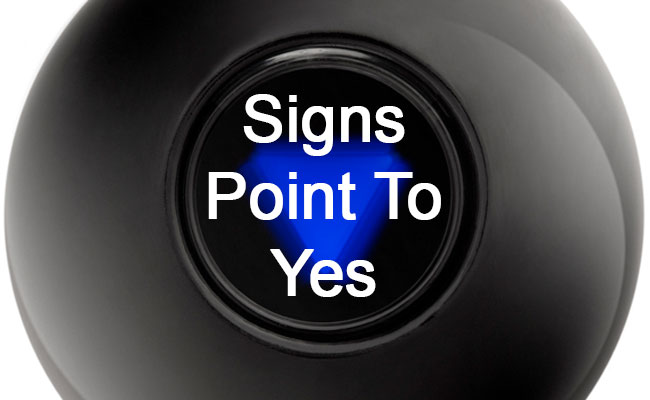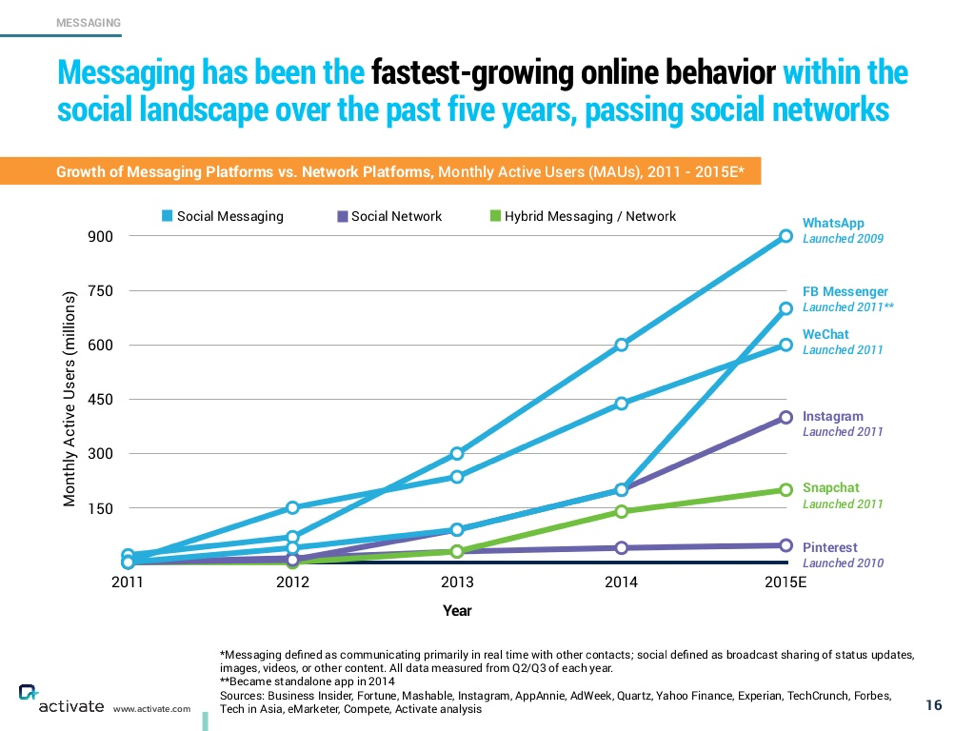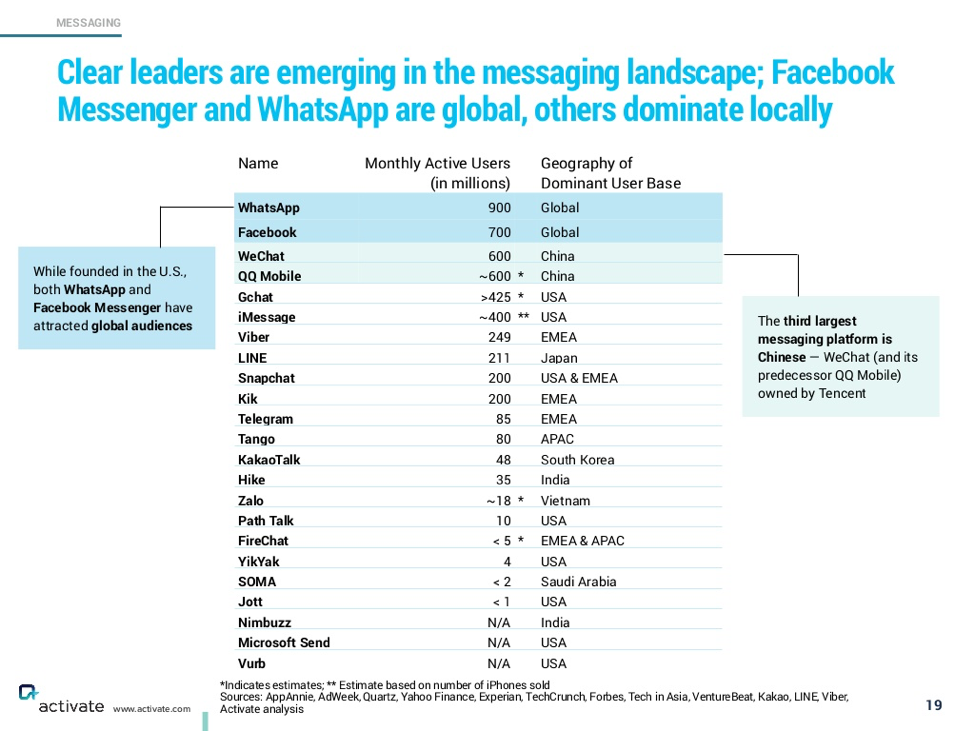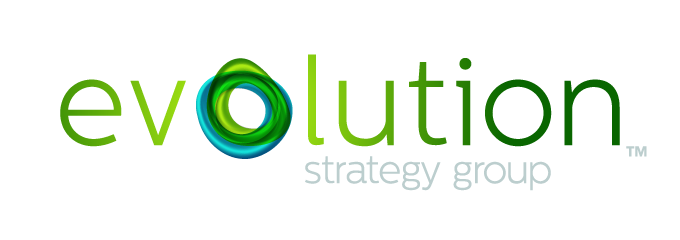
Magic eight ball says ‘signs point to yes ‘– at least if you believe the hype surrounding Facebook’s Messenger, which, according to FB’s VP of messaging products David Marcus, is on a path as a one-stop solution to phone numbers and apps entirely. Contently’s Joe Lazaukus writes that the end goal is to redefine how consumers interact with businesses, a “world where commerce, services, and communications are all completed in a chat thread instead of through a clunky combination of mobile sites and apps.” Still, we need to ask ourselves how message apps fit into regulated industries, in particular healthcare?
Let’s look at the usage stats. Recent data from Infinite Convergence’s small survey of professionals within regulated industries demonstrate that at least a third of respondents use mobile messaging regularly throughout the day and 91% at least a few times weekly. Among healthcare respondents, email still rules the day, with 65% indicating that email is used most frequently for business communications, and significant numbers concerned about message security. Still, like most consumers, there is an interest in/usage of third-party message apps, including FB Messenger and WhatsApp. Bear in mind, however, that these healthcare industry numbers trend significantly below the composite global picture, which demonstrates steady growth in the use of message apps:


[Source: Activate.com; Tech, Mobile and Media Outlook 2016, WSJ Digital]
The Activate figures indicate a burgeoning trend, one that creates enormous opportunities for organizations who wish to engage on consumer terms. In the health and wellness sphere, message apps may provide a more seamless way to book and maintain physician appointments or bolster clinical disease management through reminders to track medication use and adherence or peer-to-peer support for weight loss, diabetes or cancer. But there’s a significant limitation for developers, users and consumers: HIPAA.
What happens when physician converse with colleagues about complex patient cases through text? These conversations fall under the HIPAA violation umbrella with regard to electronic protected health information and garner fines up to $50,000 per violation. Fortunately, there are some workarounds and new enterprise mobile applications protect and safeguard private information. Take TigerText, for example, a ‘Mission Impossible’-like app that both encrypts information and allows it to self destruct within a set time period. Another option is qliqConnect, a HIPAA/HITECH compliant system that provides encryption, cloud pass-through, integrates with emergency health records and can be used on multiple devices and desktop systems. However, organizations must bear in mind that utilizing the technology is simply not enough; many fail to adequately communicate that safeguards are in place to protect valuable data and patient confidentiality, risking loss of consumer loyalty, significant revenue and reputation, particularly in today’s consumer-centric environment.
The message is clear: what was once a techhead’s wet dream is now mainstream, with consumers not only relying on their smartphones to access information but also to purchase goods and services. With an increasing reliance on a seamless experience across devices and platforms, many organizations across industries are being forced to fast track innovation and offerings. Mobile health is on the rise and with it, consumer expectations are reaching new heights with regard to access and privacy issues. Be forewarned: Magic Eightball says ‘yes’ to message apps. Healthcare cannot ‘come back tomorrow.’

